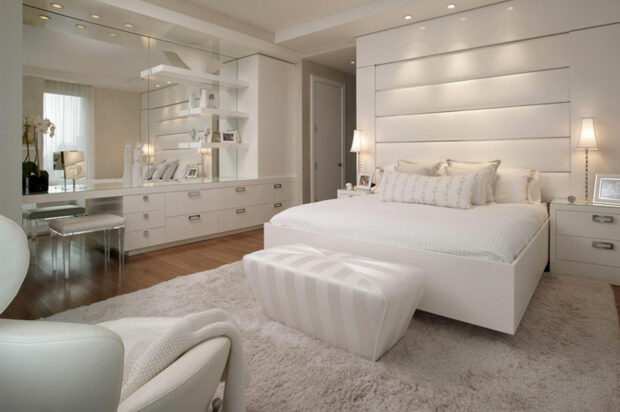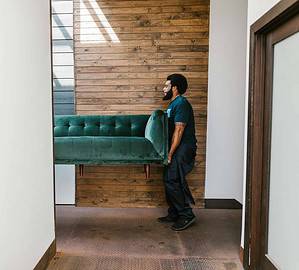A consistent routine, regular exercise, and mindfulness practices are all great ways to improve the duration and quality of your sleep. But there is one factor that seldom gets the attention it deserves, despite having the biggest influence. Of course, we’re talking about your sleep environment.

It’s a well-known fact that we aren’t getting as much sleep as we need. While external factors might play a large role in that, our bedrooms can do with some adjustments that will contribute to better slumber. So, where does one start? Below are some tried-and-true ways to make your bedroom a haven for sleep.
Adjust the Temperature
Lower temperatures facilitate deep sleep, while heat can cause discomfort. According to WebMD, you should aim to keep your bedroom in the 60°F to 72°F range.
You can open your windows on cooler evenings to regulate the temperature and maintain an influx of fresh air. Take the greener route by using an electric fan in the summer as opposed to air conditioning. Lightweight bedding and mattress pads with cooling technology are also useful.
Turn off the Lights
Light, particularly the blue kind, sends a signal to the optic nerves in your eyes, which inhibits melatonin production and raises your body temperature, thus keeping you up and alert. This is why it’s a good idea to keep your bedroom light-free when you go to sleep. Blackout curtains can help eliminate any light that’s leaking in through your windows.
But the most important light to avoid is that which is emitted by your electronics, such as laptops, smartphones, and televisions. Ideally, these should be avoided at least an hour before bed. Books are a healthy substitute. If you can’t get rid of all the light in your bedroom, a sleeping mask made of breathable fabric such as silk or rayon will do the trick.
Build a Better Bed
When last have you replaced your mattress? Is your pillow comfortable, or does it leave you with perpetual neck pain? Given that you spend hours each day using these products, it makes sense to invest in the best.
Start with the fabrics that cover your bed and pillow. Wool, silk, and bamboo are popular options thanks to their moisture-wicking properties. They’re also more breathable, keeping you comfortable throughout the night. Dust, mold and other sleep-stealing allergies should not be tolerated, so look out for allergen-proof covers.
A comfortable and supportive pillow should be your next step. Most important of all, however, is your mattress. For instance, a twin XL mattress is an option to consider thanks to its firm support and memory foam technology, as well as its ability to wick away heat and promote better air circulation. Aim for one that supports your posture.
Banish Bothersome Sounds
External noise can keep you awake and interrupt deep sleep cycles. Granted, it’s not easy to block out all sounds, especially those that are outside of your control. An increasingly popular option is to use a white noise machine, which produces your choice of calming sounds that drown out background noise. Earplugs are also an option.
Cut out Clutter
From piles of clothes to towers of paper, clutter makes us anxious and gives us another reason to stay up at night. Spending some time cleaning up and organizing your bedroom can make a world of a difference in its ability to keep you calm. As an added bonus, the likelihood of you stepping on something during your midnight bathroom trip will be reduced significantly.
You don’t have to do all of these things in one day. Simply move along from one aspect to another and over time, you’ll notice a major improvement in your sleep quality and duration.



